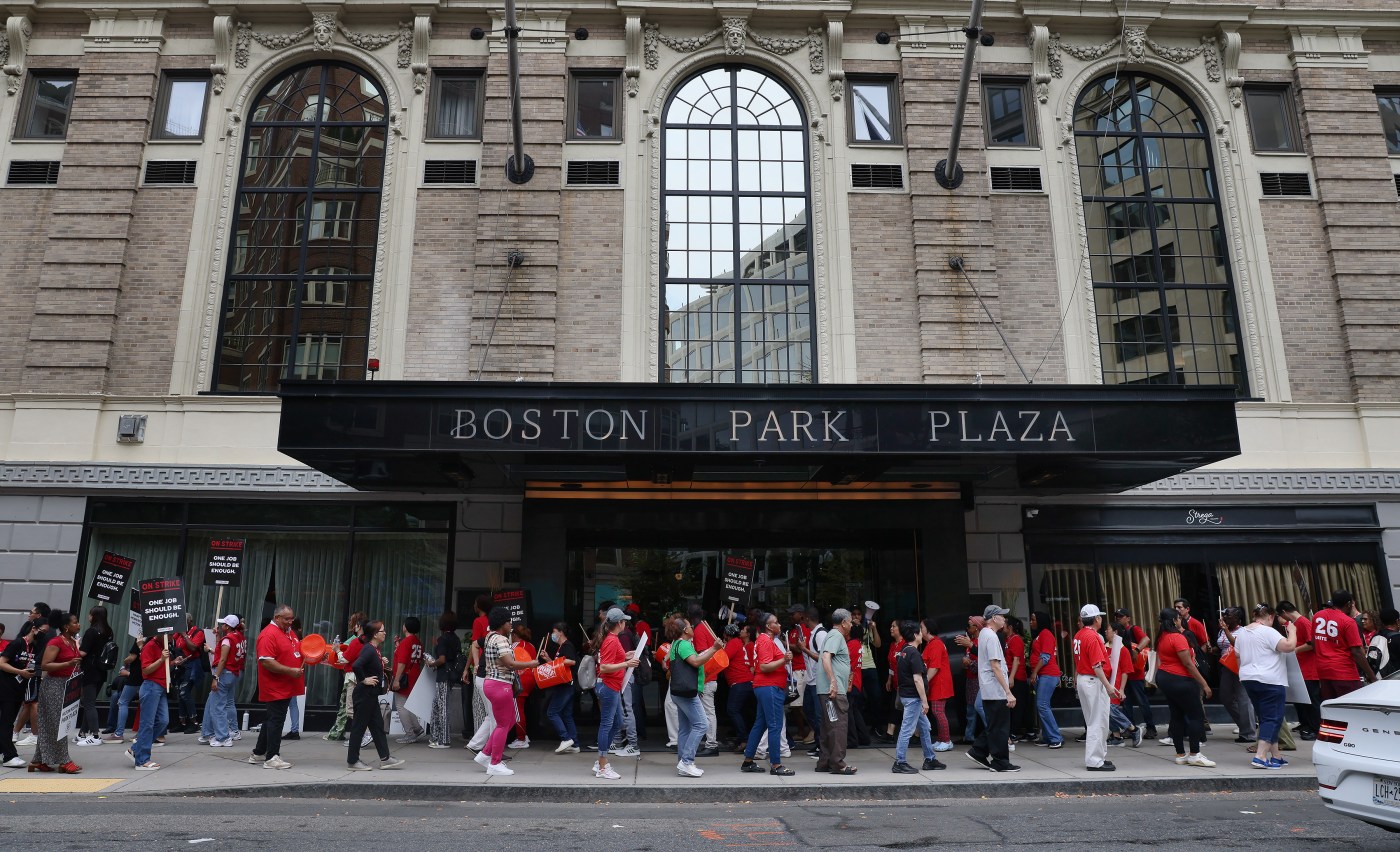
Editorial: Is ‘saving the planet’ bad for hotel workers?
For would-be guests, the nationwide hotel strike is a labor vs. management dispute, pure and simple. A piece of the conflict, however, rests at the door of visitors.
As with the work stoppages around the country, the striking hotel workers in Boston cite cuts in service (in addition to wages, staffing and workload issues) as impetus for the action.
“Service and staffing cuts have made hotel jobs more painful than ever, and we don’t want hotels to become the next airline industry – where guests pay more and get less while workers are left behind,” said Carlos Aramayo, president of UNITE HERE Local 26, according to the Herald.
One service being cut? Daily room cleaning. Before the pandemic, environmentally conscious travelers were urged to say no to daily sheet changes and such in a bid to save water and cut down on chemical usage.
A 2017 NBC News report headlined “Could Your Messy Hotel Room Save the Planet?” found that more hotels were offering perks to encourage guests to forgo housekeeping services and help conserve water and other resources.
Provenance Hotels spokeswoman Kate Buska said the move helped the hotels cut down on water usage, but also on the use of cleaning products.
“And reducing consumption of cleaning products, even if they are green, makes our environmental footprint smaller,” said Buska.
Greenhotels.com offers cards to post in guest’s rooms: “Save Mother Earth! Bed sheets washed daily in thousands of hotels in this world use millions of gallons of water and tons of detergent. Sheets are customarily changed daily. If you feel that this is unnecessary, please leave this card on your pillow in the morning.”
Another card asks guests to consider using towels more than once, a practice encouraged by many hotels. A Smithsonianmag.com article from 2014 found that “reusing towels and not changing sheets every day really does save significant amounts of water and energy. ”
The pandemic made the point moot, as the hospitality industry was pummeled during lockdowns. The service cuts implemented earlier stayed as travel resumed.
The hotel strike is putting a face on the unintended consequences of forgoing fresh sheets and towels daily.
The Associated Press notes the story of a housekeeper at the Moxy hotel in Boston who found a guest, who had declined daily cleaning, left the room with three days worth of dog fur on the curtains, the bedspread and the carpet. The worker had 30 minutes to spend on each room, and this room in this state would take longer.
Water saved, labor costs saved, but workload increased.
“The linen is very heavy from the mountain of wet towels that have been piled up for days,” Las Vegas housekeeper Rawanda Rogers told Nevada lawmakers last year. “We have a lot of party people in the rooms who trash the rooms, and it’s so hard on my body.”
Hotel staff works behind the scenes, and their experiences are not top of mind with guests. The hotel strike is about a lot more than service cuts, but at the very least it should give travelers food for thought.
The next time they decline daily cleaning and fresh towels in a bid to “save the planet” they have to ask themselves: “what’s the human cost?”
Editorial cartoon by Chip Bok (Creators Syndicate)


